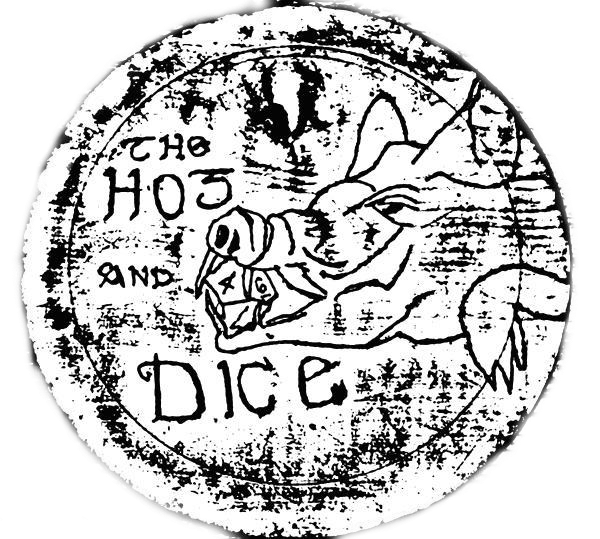So, the other day I made a Tweet with a folklore hot-take. Surprisingly this went well, but there is a point I want to address. Morgan Daimler, an excellent and respected scholar made a point regarding the Bean Tíghe -a very contentious figure- and now I have opinions.
But to start with, let’s review the origin of the Bean Tíghe.
The idea begins with a story recorded by an American Anthropologist named Walter Evans Wentz in which a young boy steals the comb of a fairy woman who is the Bean Tíghe of the Earl of Desmond at Lough Gur.
The story itself fits the pattern of similar stories well enough and fits the folklore surrounding Lough Gur well enough that I’d say it’s probably genuine (or at least that Evans Wentz adapted a story he was told). And I have no doubt that Evans Wentz’s informant genuinely did refer to the woman as a Bean Tíghe or Bean an Tí. I believe that it’s with Evans Wentz’s interpretation of that title that we run into problems.
He seems to think that the Bean Tíghe is a unique class or type of fairy within Irish folklore. Whereas, in reality, the term Bean Tíghe is a fairly common term in Irish used to refer to the woman in charge of a house and that this particular Bean Tíghe happened to be a fairy.
This very much underscores why the National Folklore Commission here in Ireland did it’s best to hire collectors not only from within Ireland (with a few notable exceptions) but also ones who had ties to the communities being collected from.
Regardless of academic background very few Native Irish collectors would have made this small but important mistake that was so easy for a trained Academic who was not immersed in the culture.
And this is why folklore collection should always be left to people within the culture.
Now this does happen. There’s plenty of accepted folkloric beliefs and traditions that can be traced back to similar misunderstandings or mistranslations. I would say the stories about St. Patrick and the snakes would be a good example. There’s also plenty of examples of the literary tradition influencing the oral tradition. Both are still legitimate as folklore.
What makes the Bean Tíghe inauthentic as Irish Folklore is not it’s origin but the fact that it has not been widely adopted by the people of Ireland.
But it’s not quite that simple though. Just because I don’t regard it as authentic Irish Folklore does not mean it is not an authentic piece of someone’s folklore.
Chinese Author and YouTuber Xiran Jay Zhao recently made a video entitled Why American Chinese Food Deserves Respect that I very much recommend watching. In it she argues that American Chinese food is not a bastardisation of Chinese culture but instead is a legitimate part of the distinct, but related culture that was developed by the Chinese Diaspora.
This reminded me of how confused people in Ireland get when Irish Americans talk about Corned Beef and Cabbage being a traditionally Irish meal, when many people in Ireland have never tasted corned beef in their lives, but have certainly eaten plenty of bacon and cabbage.
And I think I see figures like the Bean Tighe in a similar light.
You couldn’t really call them a part of the Irish Folk Tradition because very few people in Ireland even know about them. But I am far more comfortable considering them to be a part of the related but distinct tradition developed by the Irish Diaspora.
Because it does seem to have been adopted by a significant portion of the Diaspora.
And there’s plenty of precedent for this. Many of the “Celtic” nations have different versions of the same myths and tales without (many) people claiming one to be more legitimate than the other. The differences between Irish and Scottish versions of Fenian and Ossianic folklore are a good example.
And I don’t really see much reason to see the (relatively) newly blossoming traditions of the Celtic Nations In Diaspora any differently.
This would, however, require the diaspora to embrace that what they are doing is not adding to the Irish (or Scottish or Welsh etc) Tradition, but building their own that has elements of the Irish Tradition.
In fact, to be entirely honest, the term Celtic Diaspora might apply better as much of the content of this tradition is drawn from cultures throughout the Celtic Nations often by people who descend from a variety of such.
I also think that if this Diaspora Identity were embraced it would also lead to less animosity between Celtic Nations and the Celtic Diaspora. If they identified not as Us but instead as Our Cousins the differences in our cultures, stories and traditions would become not a matter of contention but instead one of interest.
It’s one thing for an Irish person to hear “Irish people tell stories about a kind of fairy called the Bean Tíghe” and an entirely different thing to hear “The Irish Diaspora tells stories about a fairy called the Bean Tighe”
One is infuriating, the other is fascinating.
It would give us space to bond over our differences as well as our similarities.
Who wouldn’t be interested in seeing how these cultures have diverged over the past two hundred or so years of geographical separation? Especially seeing as the invention of the internet has happened in that time considering that the internet can be a massive accelerant for the development of folk traditions.
But anyway, just as the folklore of Ireland should be collected and curated by the people of Ireland the folklore of the diaspora should be collected and curated by the people of the diaspora.
They know more about it than me, they are more immersed in that culture.
This is just my opinion.

